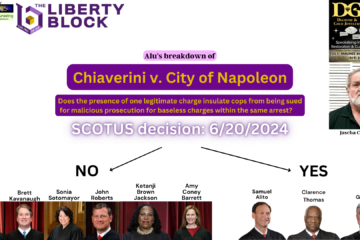A bipartisan bill proposed by five New Hampshire Representatives appears frighteningly similar to an ‘extreme risk protection order’, also known as a ‘red flag law’. Many Democrats and a few Republicans are seemingly proposing as many red flag law bills as they can this session, hoping that one will survive the veto and become law. Some firearms experts and pro-freedom activists in New Hampshire believe that there may currently be as many as five red flag bills in Concord, at the moment. HB687 was the ERPO bill that was retained from last session. HB1660 and SB677 are the ERPOs focused on ‘elder abuse’. SB574 is an ERPO focused on children. House Bill 1509 focuses on college students, specifically.
“There are five different red flag law bills right now”, said a long-time advocate for gun rights in New Hampshire. “They have a standard ERPO, a red flag for elder abuse, a red flag for children, for students…”
This version of the popular bill was seemingly written by authors who are attempting to justify this anti-freedom legislation by insinuating that its primary purpose is to stop a school shooter before they can murder anyone. Despite the likelihood of a student being shot and killed in a school shooting is 1 in 15 million (15x less likely than being struck by lightning), leftists regularly imply that children are rightfully afraid of going to school because of their tremendous likelihood of dying in a school shooting. It’s Hoggwash. This becomes increasingly evident throughout the bill. Unlike most bills in the New Hampshire legislature, this one is quite long – and very poorly written.
The general concept of HB1509 is a mechanism for getting a protective order/warrant to arrest and seize a college student’s firearms if they are reported by anyone for any suspicious behavior that could potentially relate to a potential violent incident.
Among the many terrible issues with this bill are:
1) No due process – The bill clearly states that firearms shall be removed from the individual before any hearing, meaning that due process is violated by this bill.
2) Benign behaviors – Among the nine behaviors that are considered ‘concerning’ and warning signs of a student committing a school shooting imminently by the authors of the bill are: ‘anger’, ‘a change in their interest level in firearms’, ‘interpersonal interactions’, ‘physical health changes’, “Quality of thinking or communication”, “Risk-taking”, “a decrease in School performance”, and “Violent-media usage”. How many college students exhibit none of these behaviors?
3) Punishes depressed students – The court issues an extreme threat protection order if it believes that 4 of the following 7 conditions are met:
“(A) Verbal suicide threats; and
(B) Firearms acquisition, possession, or access; and
(2) The presence of at least 4 of the following:
(A) Expressions of hopelessness and helplessness; and
(B) Previous suicide attempts;
(C) Daring or risk-taking behavior;
(D) Personality changes;
(E) Depression;
(F) Giving away prized possessions;
(G) Lack of interest in future plans; or
(3) The testimony of a licensed mental health professional that there is a threat of suicide by firearm given the possession of or access to a firearm by the respondent; or
(b) A threat that the respondent may become a public mass casualty shooter exists based on either:
(1) Evidence of 5 or more of the following:
(A) Planning;
(B) Preparation;
(C) Firearms acquisition, possession, or access;
(D) Possession, acquisition, or access to other weapons explicitly articulated by the respondent as the weapon of choice;
(E) Potential stressors;
(F) Mental health;
(G) Leakage;
(H) Concerning behaviors;
(I) Primary grievance;
(J) Targeting;
(K) Suicidal ideations and/or attempts;
(L) Concerning communications; or
(2) Evidence of either (A), (B) and (C) or (A), (B), and (D) below:
(A) Fame-seeking leakage.
(B) Planning and/or preparation.
(C) Acquisition or possession of or access to a firearm.
(D) Possession of other weapons explicitly articulated by the respondent as the weapon of choice.”
4) “Any person may report their concerns to a law enforcement official regarding an individual who may meet one or more of the standards in this section. That official shall conduct an investigation, including outreach to the individual in question.”
“…an affidavit from a family member or other responsible person that describes the specific actions, conduct, and words of the respondent that will satisfy RSA 135-G:2, II(a)(1) or RSA 135-G:2, II(b).”
5) Gun confiscation – Before a person even knows it, police will confiscate their guns.
“I. The local law enforcement agency shall execute the emergency threat protection order by:
(a) Serving the respondent with the order; and
(b) Requesting that the respondent voluntarily relinquish any firearms or other weapons in his or her possession.
II. A refusal by the respondent to relinquish all firearms or other weapons in his or her possession may be prosecuted as criminal contempt of court.”
“At the hearing, if the petitioner shows by clear and convincing evidence that the return of the firearms or other weapons to the respondent would create serious and imminent danger of personal injury to self or others, the court shall renew the order for no more than 6 months.”
6) Definitions – The bills ‘definitions’ section does not define terms. It vaguely explains relatively ordinary behavior for most people, especially college students. Some examples from the bill are:
“School performance” meaning an appreciable decrease in academic performance or unexplained or unusual absences.
“Violent-media usage” meaning significantly more than a usual age-appropriate interest in visual or aural depictions of violence.
“Physical health” meaning significant changes in physical well-being beyond minor injuries and ailments that are noticeably disruptive to the individual.
“Interpersonal interactions” meaning more than the usual amount of disagreement in ongoing relationships with family, friends, or colleagues.
“Change, escalation, or contextually inappropriate firearms behavior” meaning an interest in or use of firearms that appears unusual given the individual’s background and experience with firearms.
This horribly written authoritarian gun confiscation bill reads like a sloppy, rushed, confusing red flag bill thrown together by the most incompetent members of Everytown and Giffords gun control groups. That said, such a bill could easily pass the Democratic House and Senate. The Democrats are applying tremendous pressure to Governor Sununu, doing everything in their power to stop him from vetoing their red flag law bills. Additionally, Bloomberg seems to be priming the cashflow pump in New Hampshire, where he may spend a few million dollars on legislative lobbying and elections. If this bill is to be stopped, YOU will need to help. Contact your legislators and Sununu today.
Sponsors: Rep. David Luneau [I], Rep. John Bordenet [D], Rep. David Welch [R], Rep. Beth Rodd [D], Rep. Amanda Bouldin [D]


